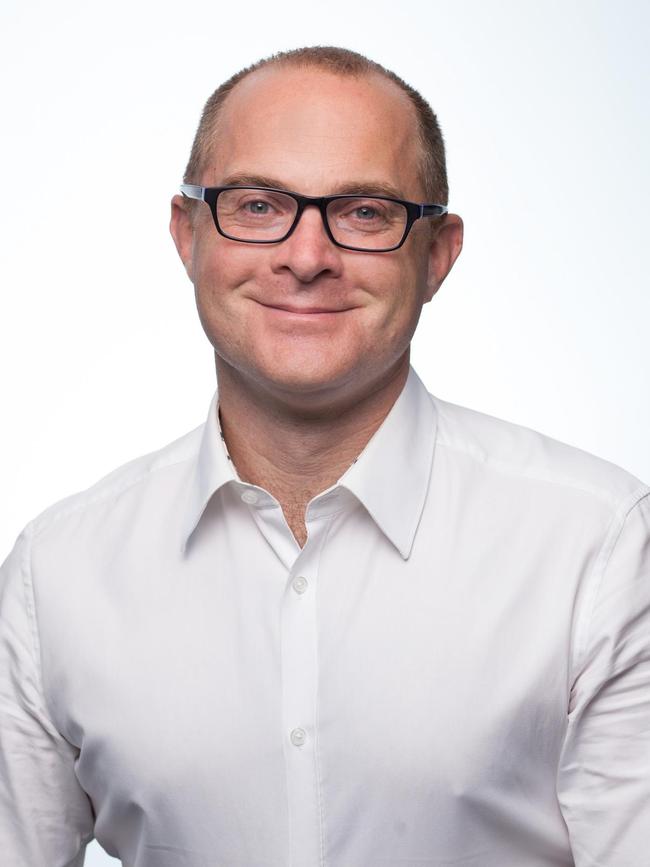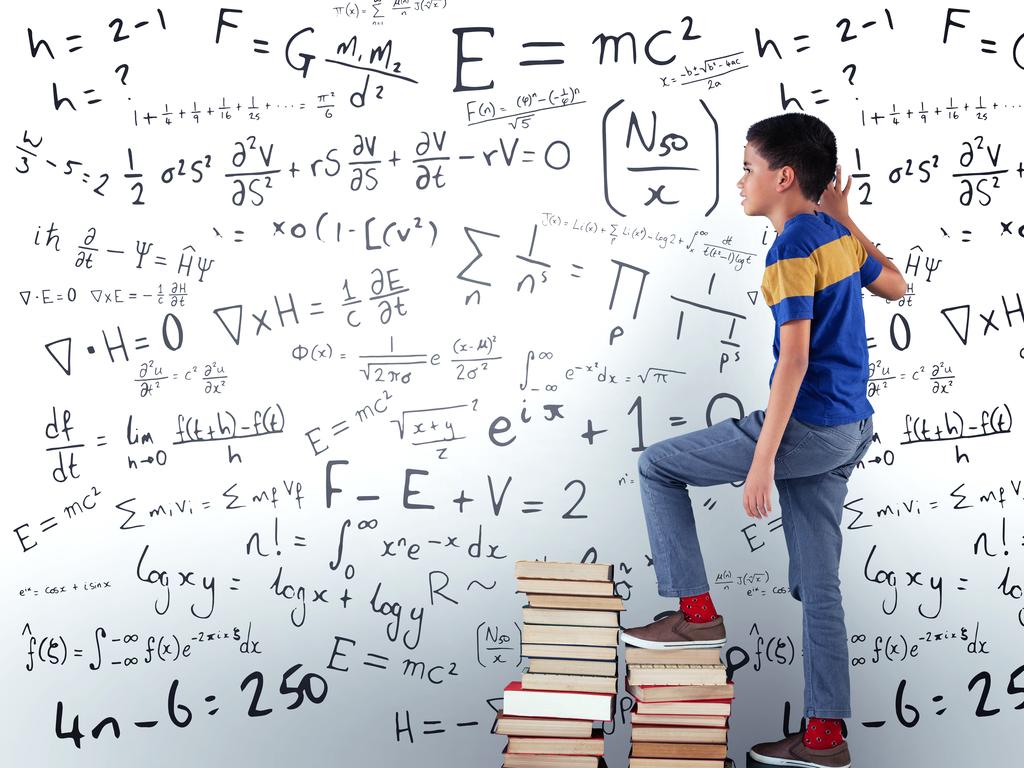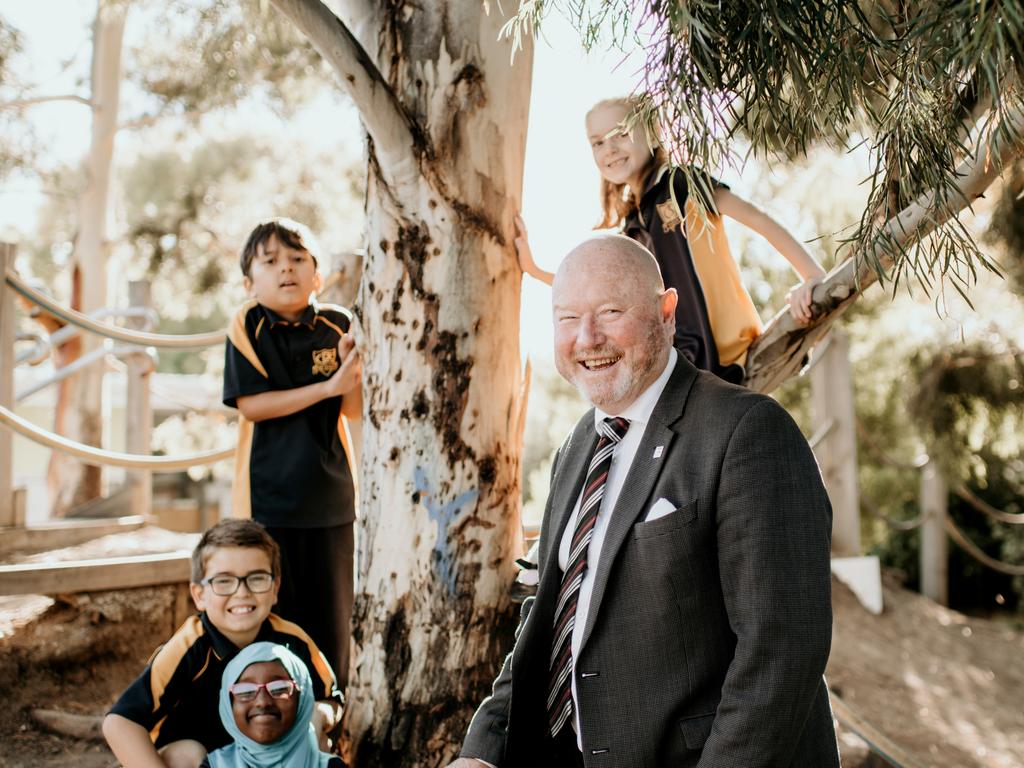Teachers no option but to make lessons up
The curriculum is too vague, confusing for teachers who have to ‘invent their own’ lessons, education ministers have been warned.

Australia’s school curriculum is too vague and confusing for teachers who have to “invent their own’’ lessons and are not clear about what they need to teach, education ministers have been warned by the nation’s official education research body.
Flaws have been identified in the new curriculum, which is still being rolled out to schools after a review last year that was supposed to have made it clearer and simpler.
The Australian Education Research Organisation, which reports to the nation’s education ministers, warns that the new curriculum “does not provide sufficient guidance to teachers’’, who should not be required to “invent their own’’ syllabus resources.
“(The Australian curriculum) should lay out a sequence for teaching and guide to assessment that ensures learning,’’ AERO has told the intergovernmental review of the upcoming National School Reform Agreement, which will set funding priorities and educational targets for schools over the next five years.
“It could contain more specific detail about the knowledge students are expected to attain, and the means by which this learning should be demonstrated.’’
The criticisms coincide with a new study that reveals Australian children are being taught only half the science content taught in comparable countries.
Employers criticised schools on Sunday for failing to ensure that all children left school with even the most basic skills in literacy and numeracy.
Australian Industry Group chief executive Innes Willox said too many school-leavers lacked the literacy skills to “write things down, take instructions, pass on messages and communicate with customers, suppliers or workmates’’.
“It’s a very common lament of employers that graduates just don’t have the basic skills in reading, writing and numeracy,’’ he said. “Employers are increasingly worried about graduates who are not work-ready.
“Universities are doing remedial literacy classes for students who are not able to string two words together in written form.’’

Education consultant Ben Jensen, of Learning First, spent a year comparing Australia’s “narrow and shallow’’ science curriculum to that of England, the US, Hong Kong, Japan, Singapore, and the Canadian provinces of Quebec and Alberta.
He said he was “shocked about how big the holes are in the science curriculum’’.
“The Australian science curriculum contains about half the science content of the average of other curriculums over the first nine years of schooling,’’ he says in his report. “It is lacking content, has poor sequencing, and a lack of breadth and depth.’’
Dr Jensen says teachers have done “an incredible job not to let the standards of Australian students fall further than they have’’.
“For too long, Australian teachers have been asked to succeed despite the Australian curriculum,’’ he says. “We need to recognise as a country that we have let Australian teachers cop great criticism for what is an incredible system failure. This is simply wrong.’’
American students were taught nearly four times as much biology content as Australian children, the Learning First research found. In Quebec, students were taught three times more content about Earth and space science. Australian students had to wait until year 10 to learn about acids and bases – a topic taught to children in year 6 in Japan, or year 8 in Hong Kong, Quebec and Singapore.
Up until year 8, Australian children are taught just five science topics in-depth, compared to 22 topics in the other countries.
The Learning First report says that a good curriculum is “clear and specific about what students are to learn’’. “It is cumulative, with content sequenced across year levels, so that student learning effectively builds on prior learning,’’ it states.
“Students need to learn and understand simple concepts, such as the force of gravity, before they try and learn complex concepts such as how gravity causes planets to orbit the sun.’’
The report provides many examples of vague instructions for Australian teachers using the national curriculum.
Year 10 students, for example, must “explain the role of meiosis and mitosis and the function of chromosomes, DNA and genes in heredity and predict patterns of Mendelian inheritance”.
But Canadian students were taught in year 7 to locate chromosomes in a cell, and that hereditary characteristics were transmitted through genes. By year 10, Canadian students were explicitly taught 14 concepts, including the composition of a DNA molecule, defining what is a hereditary trait, and naming hereditary traits in an individual or population.
Dr Jensen called for a halt to the rollout of the new curriculum until it was completely rewritten. He said the curriculum must be clearly written and stripped of jargon. “Simple is always best, but it’s always the hardest,’’ he said.
Grattan Institute education program director Jordana Hunter, who is on the expert advisory panel of the National Schools Reform Agreement, also called for a more detailed curriculum to help teachers.
“The Australian curriculum provides high-level direction only, so there’s a lot of work for teachers to do to fill the gaps,’’ she said.
“Inevitably you end up with a lot of variation and quality from classroom to classroom.
“It’s a bit of a lesson lottery.’’
Criticism of the curriculum follows the failure of one in three students to reach minimum standards in the 2023 NAPLAN tests. Australia has also been leapfrogged by other industrialised countries in the OECD’s Program for International Student Assessment tests, which measure the performance of 15-year-old students.
Dr Jensen said that by 2018, Australian average science scores had fallen by 24 points, equivalent to nearly one full year of schooling.
“In other words, Australian students who were 15 years old in 2018 ... perform at a level nearly a year below the level of their peers studying in 2009 before that curriculum was introduced,” he said.
AERO’s advice to the schools reform review says the curriculum “should be content-rich, without being overcrowded or ambiguous about what is core and what is optional’’.
“It should offer clear implementation guidance for teachers and not require them to locate or invent their own curriculum resource materials,’’ it says.
“Equitable access to quality curriculum should be an entitlement for all students, and the curriculum should represent a guarantee of learning.’’
The Australian Curriculum, Assessment and Reporting Authority, which reviews the national curriculum every six years, defended its “world-class curriculum that identifies the essential content all Australian children should learn, including in science’’.
It said all nine federal, state and territory education ministers had endorsed the science curriculum in April last year.
“The review process also included international benchmarking with high-achieving counterparts such as Singapore, which found the Australian Curriculum was on par with these curriculums in terms of overall breadth, depth, and rigour,” a spokesman said.
A spokesman for federal Education Minister Jason Clare said that a high quality science, technology, engineering and mathematics (STEM) education was critically important for Australia’s current and future productivity.
“After a significant review, the latest version of the curriculum was signed off by the previous government and State and Territory Ministers in April last year,” he said.
“States and territories are responsible for the implementation of the curriculum,” he said.
Federal Opposition Education spokeswoman Senator Sarah Henderson said “in a number of respects, the Australian Curriculum is not fit for purpose”.








To join the conversation, please log in. Don't have an account? Register
Join the conversation, you are commenting as Logout